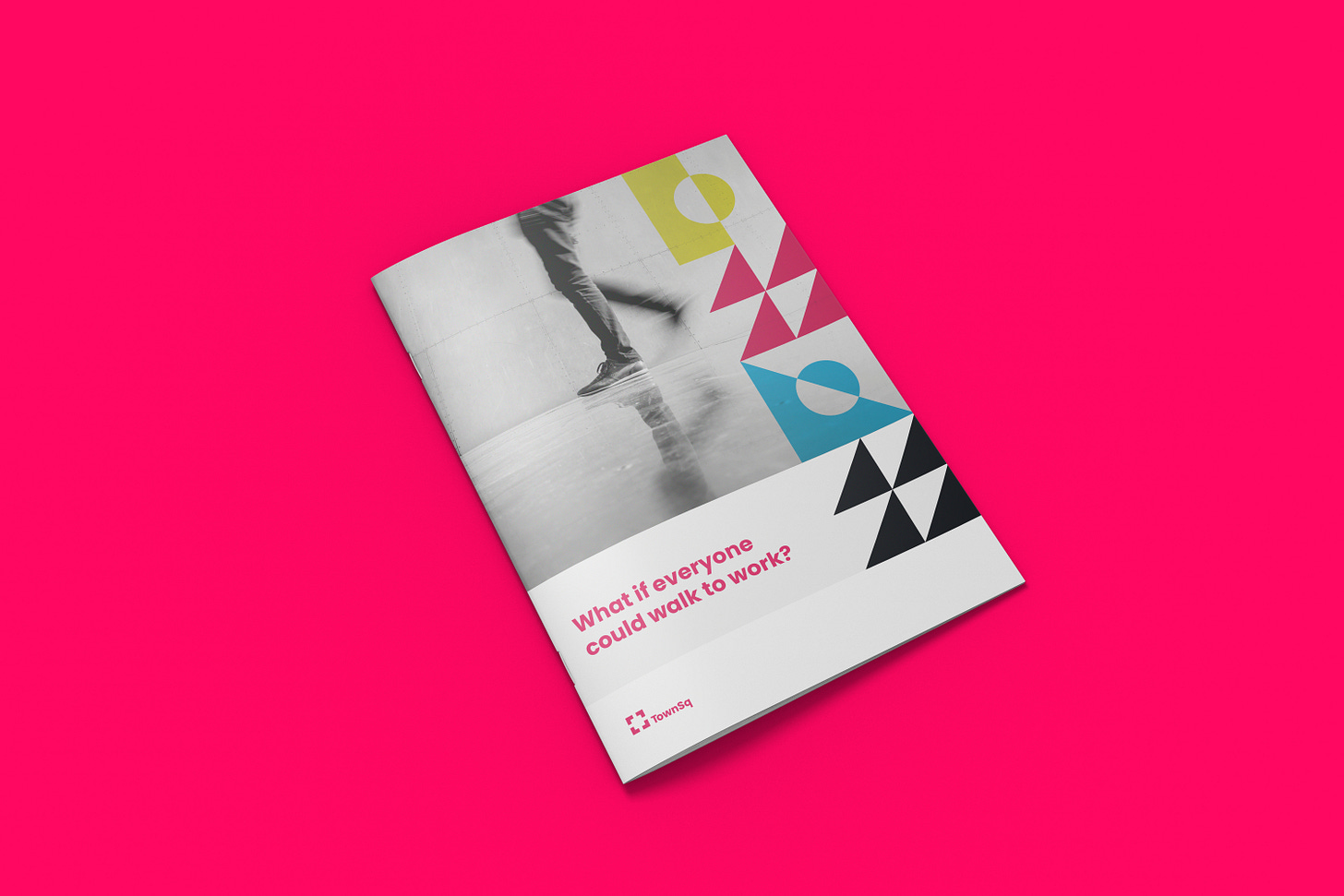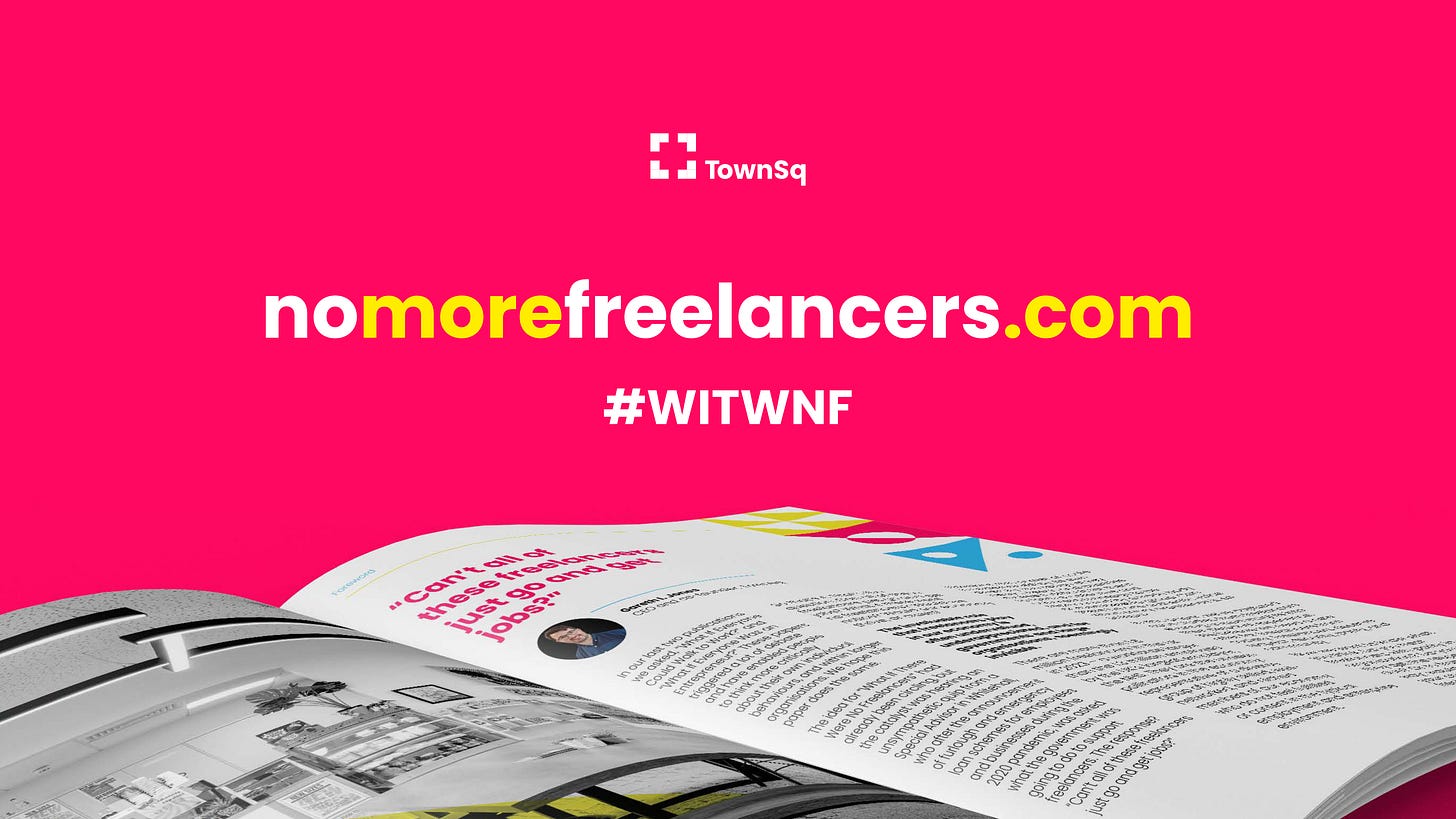What if there were no freelancers?
Why freelancers need more credit, and what we can do about it
I’ve been a bit quiet so far this year, but it’s time to unwrap something we’ve been working on behind the scenes.
This month we launched our latest What if paper: What if there were no freelancers?
Our economy relies on freelancers, in the UK there are more freelancers than all the people employed by the NHS - the UK’s largest employer - but time and time again we hear stories of freelancers being under appreciated and disrespected.
Our last two what if papers focused on what if everyone could walk to work, how much people appreciated and valued such a simple change to their lives, and what if everyone was an entrepreneur, the importance of entrepreneurial skills in the modern economy.
The idea for “What If There Were No Freelancers” had already been circling, but
the catalyst was hearing an unsympathetic quip from a Special Advisor in Whitehall, who after the announcement of furlough and emergency loan schemes for employees and businesses during the 2020 pandemic, was asked what the government was going to do to support freelancers. The response?
“Can’t all of these freelancers just go and get jobs?”
So that’s it. That’s the question. Can all of these freelancers just go and get jobs?
What if there were no freelancers? Would we notice? Would our economy thrive, or crash?
Unsung Heroes
This time around we’re putting a focus on the unsung heroes, the glue in our economic model - freelancers and the self-employed.
Freelancers do what they do in many ways, but there are three key things they do that get overlooked:
They have a human-centred approach
They and their businesses are one in the same, their commercial relationships are underpinned by high levels of personal trust.
They are agile
They shapeshift, making sure they’re always the perfect fit for their clients, and they act fast - free from hierarchy or organisational politics.
They cross pollinate
They have a highly specialised expertise using their unique vantage point. They apply solutions developed in one place to challenges encountered in another.
Why Do Freelancers Freelance?
The reasons why they do it are also useful to understand.
Scale
Freelancers appreciate scale, but in a less conventional way.
They are often attracted to opportunities beyond their doorstep, being able to service national and international clients and work on exciting and challenging projects.
Stimulation
They want stimulation from their work.
They don’t fit into a box and don’t want to. Their services are constructed around their own unique skill set and selling points, and find this motivating.
Flexibility
They crave, or need, flexibility.
They desire a way or quality of life not readily available through traditional models of employment. They want work to complement life - not compromise it.
Purpose
They have a sense of purpose.
It isn’t just about the money, they want to - and do - make a positive difference to the world.
Stories
We have captured stories in the report that show six perspectives but this is the beauty of the freelance community. It is diverse and has diverse points of view and appreciation.
However, this power of scale is undermined by its own diversity: the range of key issues, needs and priorities makes it difficult for them to form a collective and coherent message to be represented by a trade body or membership group.
Can there be one authentic voice when every experience is so unique?
Better Conditions
We believe we need a new offer for freelancers from society. Freelancers deserve respect, security, parity, and community.
From a political perspective, we want to put forward a manifesto for freelancers:
If the true value of freelancing is to be realised within our economies we need to recognise that:
Freelancers need respect
By the people who pay them, by policy makers, and society at large. Young people need to grow up seeing freelancing as a positive career choice.
Freelancers need security
Strong legal protections are required to enable them to secure, deliver and be paid for work without fear and undue risk. Freelancers are not disposable resources, and need equal access to training opportunities and other benefits.
Freelancers need parity
Whether through the tax system, parental rights, sickness leave or otherwise, freelancers should not be unfairly disadvantaged by their employment status.
Freelancers need community
With strong networks for peer support and access to advice and guidance. Freelancers need bespoke support, not the singular view that any entrepreneur needs to focus only on growth. Freelancing is a growing movement, freelancers should be the ones to benefit from that.
We have asks for you in the paper, whether you are a legislator, educator, researcher, business or freelancer.
We all need to recognise and value the essential role of freelancers, incentivise and enable their success, and future generations of freelancers.
We all have a role to play to celebrate and support the success of freelancers and the self employed.
Now we want to know what you think. Do you treat freelancers with parity in your organisation? Do you think they get the respect they’re due? Or to frame it another way: would you encourage your child to pursue a freelance career?
You can read the full report and share your freelancer story now on nomorefreelancers.com or on TownSq.co.uk.
If you support entrepreneurship and freelancers - make it clear. Do you have ideas and thoughts to add to the debate? Share your views on social media with the report and the hashtag #WITWNF









